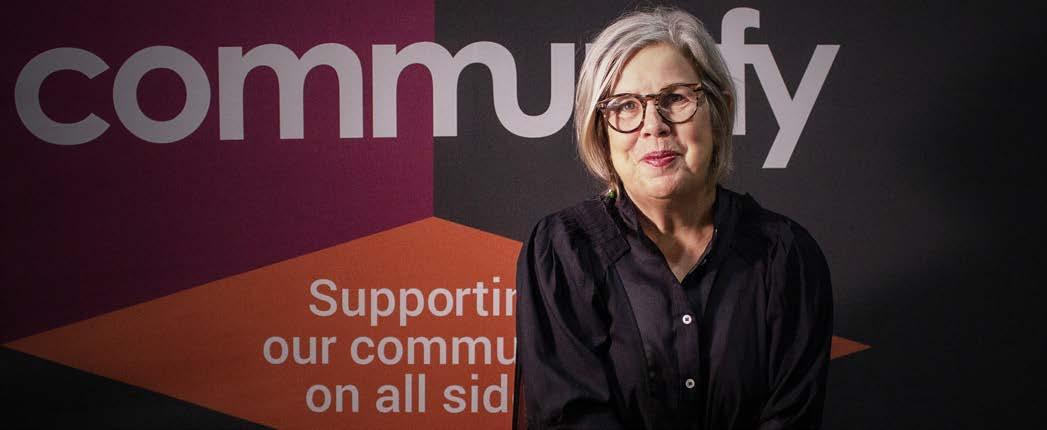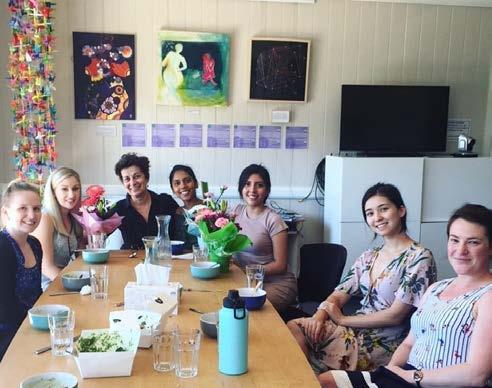
1 minute read
Non-therapeutic Groups
Community Table
Recovery through Connected Eating - FY 2018/19 The Community Table: Recovery through Connected Eating (CT) aims to support people who are recovering from eating issues. As previously identified by EDQ clients, there was a gap in relation to community-based meal support programs.
Advertisement
CT was developed to bridge that gap by providing a structured and supported group program to allow individuals to work towards nutritional goals, engage in social eating and develop skills to manage meal related anxiety and distress. Sensory and mindfulness-based activities provided clients with an opportunity to develop new strategies to manage meal related anxiety and distress.
Craft-based activities, gardening and connection building activities were also utilised to help manage meal related anxiety and distress in the moment. David Langford, Eating Issues Practitioner, co-facilitated all five rounds along with a staff member from the Queensland Eating Disorder Service Day Program. Peer Worker, Lisa Kelly, also helped to facilitate one round.

Statistical analysis of quantitative data completed by Dr Yvette Miller at the School of Public Health and Social Work at the Queensland University of Technology showed positive outcomes in each program, including statistically significant reduction in eating disorder symptomology and across the Restraint, Eating Concern and Shape Concern subscales.
A review of the qualitative feedback observed a range of common themes across all groups. The clients stated that they enjoyed the variety of different activities. The clients also identified that they found the structure of the program and support of Eating Issues Practitioners to be beneficial.
Several clients stated that they enjoyed the meals and asked for recipes so they could cook the meals at home.
Across as groups, clients identified that connection was an important component of the group, and while most clients felt connected, they would have appreciated further opportunities to develop stronger connections with each other.
The Community Table program will continue through 2019 and into 2020, with continuing evaluation to ensure that the program is suited to client needs.











